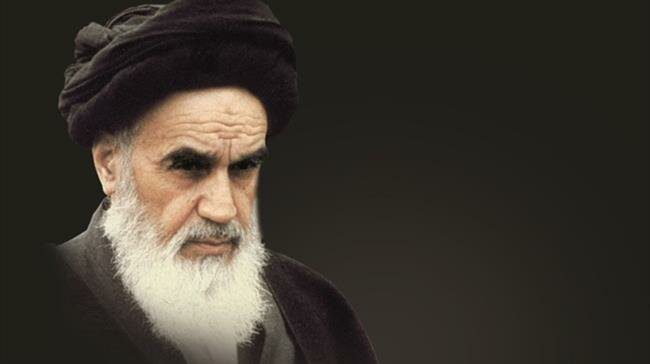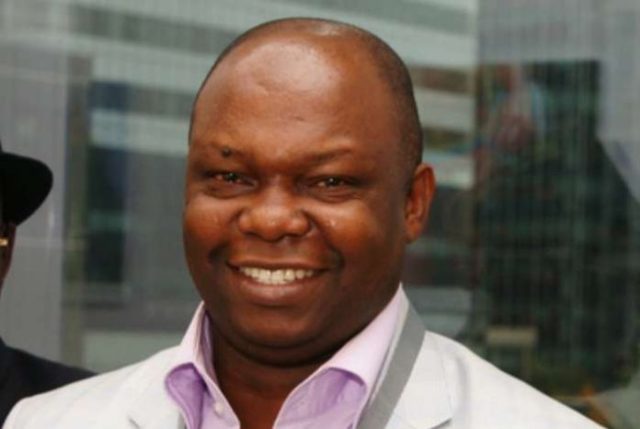Life And People
The ghost of Ayatollah Khomeini -By Festus Adedayo
Buhari government should deploy its secret service goons to dispassionately feel the naked pulse of ordinary Nigerians on the street.

For the Nigerian government under President Muhammadu Buhari, no two words carry with them today equal measure of excitement and objection as the words “change” and “revolution.” You can earn an unearned place at the top by simply professing to be a “change” apostle the same way you can be conferred with a Mussolini-like jailing with manacles affixed to your hands if “revolution” is what revs you. Same atmospherics of fear obtained during the first coming of General Buhari. For fear of being jailed like Nduka Irabor and Tunde Thompson, writers simply embraced Afghanistanism, a practice that gained notoriety in the United States in the 1970s where, rather than comment on controversial issues at home, academics and writers turned their attention to issues in distant places. Today, some writers now avoid the use of “revolution” like a plague, choosing to euphemize the obvious fire that will burn if Nigeria continues along this ruinous path which government and its adulterous partners, the Nigerian elite, are leading them daily.
Last week, government again exhibited how scared stiff it was with that otherwise harmless word, “revolution.” In a 56-paragraph counter-affidavit it filed at the Federal High Court in Abuja last Wednesday, government advertised this palpable fear. The 1979 Iranian revolution, also known as the Islamic Revolution, which ushered in Ayatollah Khomeini, was a pestilence it feared Ibrahim Yaqoub El Zakzaky may harbour, the Buhari government confessed in the affidavit.
But, what evoked the Khomeini revolution in Buhari and what similar imprimatur do Zak-Zaky’s activities bear? Why is government this frightened? In 1977, Iranians had become very disillusioned with Mohammed Reza Shah Pahlavi, a pro-Western, United States of America-backed monarch whose reign gained global notoriety. By October of that year, demonstrations against the Shah had reached their apogee with civil resistance as strong as twine. The resistance literally paralyzed the country in 1978, so much that the Shah was forced to abdicate the throne on January 16, 1979. He headed for exile, making him the last of the Persian country’s monarchs. By the time he was leaving, however, Shah left a regency council and in the thick of this national melee, Khomeini, leader of one of the factions of the revolt, was invited, greeted by a tumultuous approval, amid heavy guerilla street fighting. On April 1, 1979, Iran officially voted in a referendum to become an Islamic Republic.

The Khomeini-led revolution took the globe by surprise because it essentially lacked basic ingredients of a revolution. Except for claim that it was its modern variant which had side-stepped hitherto-known qualifications of a revolution, there was no war, no surrender nor defeat; no détente, peasant rebellion nor a military that openly advertised its disavowal with the status-quo. This is because, at the time, Iran witnessed relative prosperity under the Shah who was relatively massively popular. However, Iranians suffocated under Shah’s authoritarian monarchy and since then, it would seem, America had never forgiven this overthrow of its stooge.
The cat and mouse game between the leader of Islamic Movement in Nigeria, El-Zak Zaky and the Buhari government has provoked attention in national discourses since 2015 when government’s authoritarian weapon was brought to bear on him. Born in 1953, Zak-Zaky is said to bear several traits of Khomeini. Radicalized during his studentship at the Ahmadu Bello University, Zaria between 1976 and 1979, this First Class student of Economics was equally hounded as now by successive military governments since the 1980s when the seed of revolt was planted in him. He is said to be heavily sponsored by the Iranian government and has a horde of loyalists who bear inexplicable allegiance to him.
Of a truth, no responsible government should stand by and allow an individual or group of persons to make the state ungovernable for it. Government has thus deployed all manner of tactics to keep El-Zak-Zaky out of circulation. In 2015 during a raid of his Kaduna hideout, hundreds of faithful were alleged to have been massacred, provoking mild rebuke from the Western world. Recently when public outcry ensured that government relaxed its paws on the flesh of the controversial Islamic sect leader, Buhari still kept tabs on him, right to a hospital in India.
It is with same ferociousness that government has pursued the detention of Omoyele Sowore, rights activist and Publisher who has been kept in isolation since August 2. Before Justice Nkeonye Maha of the Federal High Court in Abuja a few days back, government claimed that Sowore was on the verge of toppling the Buhari government. This is reminiscent of the vague and rebuttable allegations during the military era where alleged coup plotters were executed without prima facie evidence of their involvement in alleged government takeovers. Till today, it is said that no corroborative evidence was available in the conviction of the duo of Major Generals Iliya Bisalla and Mamman Vatsa.
In court papers it filed to keep Sowore in detention, the DSS alleged that the Sahara ReportersPublisher was in cahoots with “foreign collaborators” who gave him “millions of dollars” and that they indeed met in Dubai, United Arab Emirates on how to topple the Buhari government. Sowore immediately disclaimed this allegation and indeed said he had never been to the UAE before. But for a tacit judicial abetment of tyranny, evidence ought to have been led in defence of this claim and in its absence, governmental oppression of an innocent citizen established. The question that this provokes is, why does the Buhari government dread “change” this much and why does a government renowned for pussy-footing on matters that have to do with the people be in a relentless pursuit of self-serving matters it advertises as national interest?
In other words, is the detention of El-Zak Zaky and Sowore really a matter of national interest? Put differently, is government merely being frightened by its own shadows? Is the drive to hold them down a continuation of that infernal thirst akin only to military despots’ crave to assert themselves? Is the obsession of government with “revolution” a fear borne out of unfavourable reports daily dropped at the Villa that Nigerians are, more than ever before, persuaded that they had reached the end of their tethers and as such, awaiting a spark to take their destines in their own hands? These are the questions that beg for answers in this resurgence of government’s penchant to detain and hound dissenting voices.
Revolutions or quest to upturn a government other than through the ballot box can only work when an incumbent government is working against the people. In the Mohammed Reza Shah Pahlavi example in Iran cited above, the Khomeini revolution was able to upstage it because of its authoritarianism. Though there was relative peace under the Shah, that peace was got through the anvil of oppression of the people. And as the cliché goes, when peace finds no anchor in a society, violence easily offers self as a substitute. The way and manner in which the Buhari government is going about its resistance to a so-called revolution is archaic and incongruent with modern trend. If it deploys the mechanism of an equitable governance that is open and accountable, Nigerians themselves will fight anyone who advocates any form of governance outside of its democratic government. But because all the people see is a government managed by cronies, high on propaganda and very low in delivery of the basic ingredients of good life, Buhari and his co-travellers in this boat become so alien to the people and anyone who calls for its alienation receives applauses from them.
As I once said, the Buhari government should deploy its secret service goons to dispassionately feel the naked pulse of ordinary Nigerians on the street. What is uttered out is worse than the irreverent chants of El-Zak Zaky’s adherents. Unfortunately, those who surround government are a bunch of




















